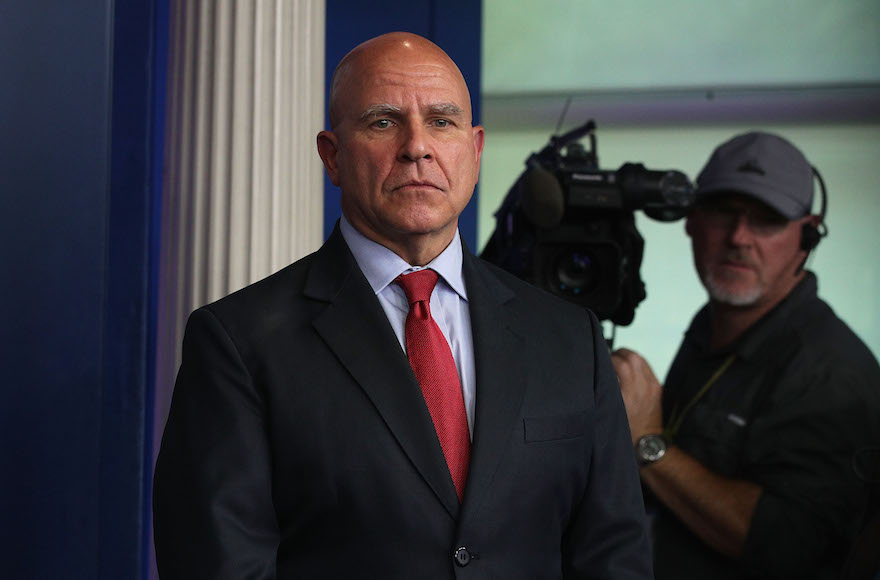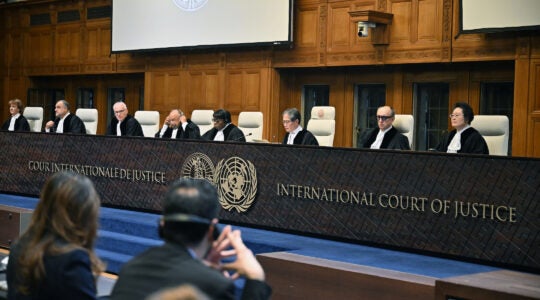WASHINGTON (JTA) — H.R. McMaster, President Donald Trump’s national security adviser, removed from the National Security Council Ezra Cohen-Watnick, a controversial aide, in what appeared to be a sweep of Iran hard-liners.
The White House late Wednesday confirmed a report on a conservative news site, Conservative Review, that Cohen-Watnick, the point man for coordination between the NSC and the intelligence community, was gone. It said he would get another job within the administration.
“A different set of experiences is best-suited to carrying that work forward,” a White House official told the media, saying Cohen-Watnick would continue to make “many further significant contributions to national security” as part of the Trump administration.
Cohen-Watnick’s removal comes after the revelation by The Atlantic on Wednesday of the dismissal of Rich Higgins, another Iran hawk who was the NSC’s director of strategic planning. Higgins was sacked for circulating a memo in which he alleged that there was a “Maoist” insurgency within and without the government of “globalists and Islamists.”
Also gone is Derek Harvey, who held the Middle East portfolio at the NSC, and who also was an Iran hawk, and who may assume another role in the administration. McMaster tapped Michael Bell, a retired army colonel who has a conventional career portfolio, to replace Harvey.
The removals come as McMaster seeks to consolidate his control of security policy and remove loyalists to Michael Flynn, Trump’s first national security adviser, who left after less than a month because of revelations that he had obscured Russia ties.
Notably, however, all three differ sharply from the relatively moderate Iran policy espoused by McMaster. Last month, McMaster joined Secretary of State Rex Tillerson and Defense Secretary James Mattis in persuading Trump to recertify Iran’s compliance with the Iran nuclear deal. Trump had been leaning toward decertification, which could trigger a crisis with U.S. allies who favor the deal struck by President Barack Obama and five other world powers with Iran. The deal trades sanctions relief for a rollback of Iran’s nuclear program.
Within days of the recertification, it was reported that Trump had authorized the establishment of a rival group within the White House, led by his top strategic adviser, Steve Bannon, that would seek a path out of the deal.
McMaster had previously tried to remove Cohen-Watnick from the National Security Council but was overruled by Trump, who heeded interventions on Cohen-Watnick’s behalf by Bannon and Trump’s son-in-law, Jared Kushner, who is the senior administration official responsible for Middle East policy.
Cohen-Watnick was at the center of a controversy in March when it emerged that he and another staffer leaked information to Rep. Devin Nunes, R-Calif., the chairman of the House Intelligence Committee, that Nunes and the White House apparently hoped would vindicate Trump’s baseless claim that Obama had eavesdropped on him.
JTA has documented Jewish history in real-time for over a century. Keep our journalism strong by joining us in supporting independent, award-winning reporting.






